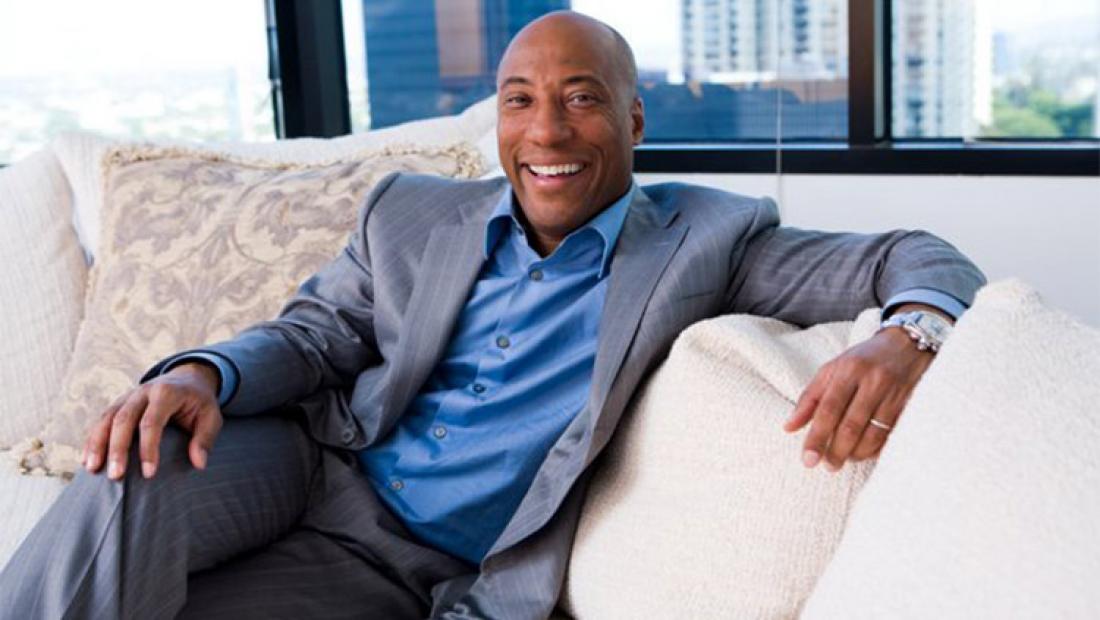Court Won't Dismiss Allen Suit Against Charter

The smarter way to stay on top of broadcasting and cable industry. Sign up below
You are now subscribed
Your newsletter sign-up was successful
An appeals court has again denied Charter's effort to dismiss the claim by Byron Allen's Entertainment Studios that the cable operator's "refusal" to enter into a carriage contract with the programmer was racially motivated.

The case now proceeds to trial unless it is settled beforehand. A Charter spokesperson was not available for comment at press time.
It was the Ninth Circuit's second bite of at the apple.
A three-judge panel of the U.S. Court of Appeals for the Ninth Circuit in November rejected Charter's motion to dismiss the suit and remanded it back to the U.S. District Court for the Central District of California for further proceedings, which likely means a trial on its merits unless the parties settle.
Charter appealed that November decision by the three-judge panel that Allen, joined by the National Association of African American-Owned Media, had at least made a plausible case of discrimination against Charter.
This week's decision forecloses an appeal to the full Ninth Circuit, so next stop for Charter would be the Supreme Court if it chooses to appeal again rather than go to trial.
Allen and company filed a similar suit against Comcast, which the decision also allows to go forward since they were based on the same argument. The Ninth Circuit, also in November, reversed a different decision out of the same California District Court that the Comcast complaint should be dismissed because discrimination was not the only ("but for") explanation. "We are reviewing the opinion and considering our options," said a Comcast spokesperson.
The smarter way to stay on top of broadcasting and cable industry. Sign up below
The panel hearing the appeal of the November Charter decision said Monday (Feb. 4) that the November panel had provided the wrong legal justification for siding with Allen, but came up with another reason for why race did not have to be the only factor (the so called "but for" test) in such a contract decision for it to run afoul of the antidiscrimination law.
The latest decision does not mean a court has concluded Charter did discriminate, only that the allegations were sufficiently plausible for it to go to trial, and that they were not foreclosed by what Charter asserted was cable's First Amendment right to choose its own programming.
To dismiss the case against Charter before trial, the court would have had to conclude that Allen and company's allegations were "implausible." Instead, said the court, "we conclude that these allegations, when accepted as true and viewed in the light most favorable to Plaintiffs, are sufficient to plausibly claim that Charter denied Entertainment Studios the same right to contract as white-owned companies."
Responding to Charter's arguments that there were plenty of race-neutral explanations for not agreeing to carriage, including "limited bandwidth, timing concerns, and other operational considerations," and that it was entirely for those reasons, not any discrimination, the deal didn't get done, the court said that was plausible, too, but that would be up to the lower, trial court, to decide, since it was not weighing in on the evidence on either side, just deciding if the case would be dismissed out of hand.
As to Charter's claim the First Amendment trumped the antidiscrimination law, which is a law of "general applicability," the court said the antidiscrimination law applies to conduct not speech. The court said that law barring discrimination in contracting "does not seek to regulate the content of Charter’s conduct, but only the manner in which it reaches its editorial decisions—which is to say, free of discriminatory intent. It is therefore 'justified without reference to the content of the regulated speech.'"
In the Comcast decision, the Ninth Circuit did not find that the decision was racially motivated, or even weigh in on the facts. It simply concluded that the district court in the Comcast case had erred in dismissing the suit on the basis that racial bias was not the only plausible explanation, and that the Charter panel decision had been correct in saying Allen and company only had to show that bias was a possible explanation, not the only one.
"Comcast and Charter are wrong by pursuing a legal defense that the First Amendment allows them to discriminate," said Allen.
"We are very pleased with the ruling by the Ninth Circuit to uphold their decisions in our favor for a second time. If Comcast and Charter want to pursue the Supreme Court, we are highly confident that the Supreme Court will affirm the Ninth Circuit and support these historic legal decisions. Unfortunately, Brian Roberts of Comcast and Tom Rutledge of Spectrum/Charter have refused my offers to sit down to discuss these very serious matters. Now, we have no choice but to enter the discovery phase to depose all of their executives and business associates, as well as receive all of their correspondence/emails and contracts, to prove our cases in front of a jury."
Contributing editor John Eggerton has been an editor and/or writer on media regulation, legislation and policy for over four decades, including covering the FCC, FTC, Congress, the major media trade associations, and the federal courts. In addition to Multichannel News and Broadcasting + Cable, his work has appeared in Radio World, TV Technology, TV Fax, This Week in Consumer Electronics, Variety and the Encyclopedia Britannica.

